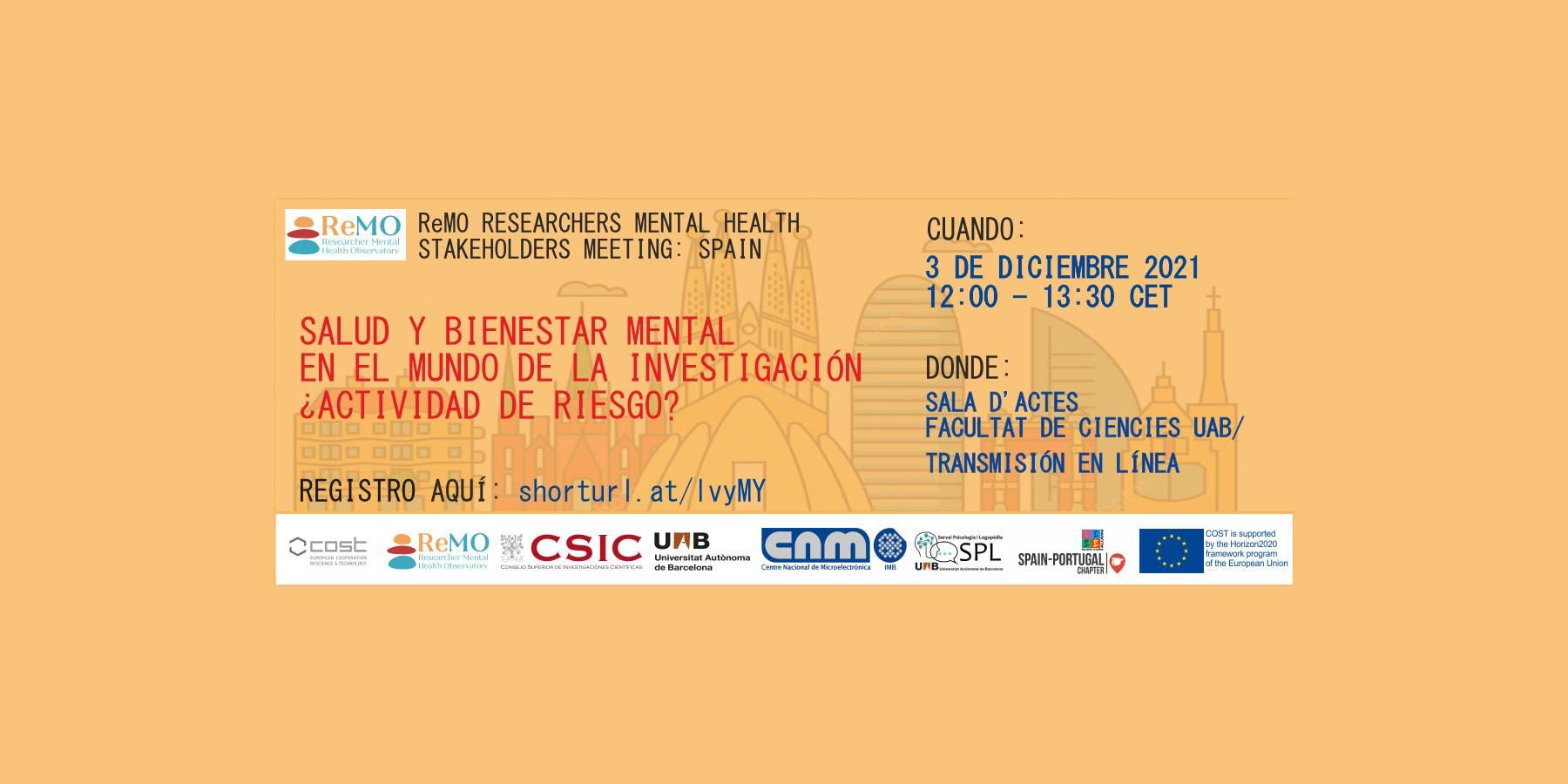A round table will address the problem of mental health in the field of research
The seminar "Mental health and well-being in the world of research: risk activity?" It is organized by the European Observatory of Mental Health in Researchers (ReMO), the CSIC and the UAB. Up to 32-42% of people in academia and among graduate students have a psychological problem, according to recent studies.

Today, Friday, December 3, the European Observatory of Mental Health in Researchers (ReMO), the CSIC and the UAB organize a debate on mental health in the world of research. The debate will bring together about 130 researchers, including experts and representatives of interest groups, to deal with an aspect that until now has been little visible.
It is estimated that 19% of the general population has some psychological problem, a figure that has increased significantly with the pandemic, according to recent research. This figure almost doubled in academia and among graduate students: between 32 and 42% according to recent studies. The figures are collected in the Researcher Mental Health and Well-being Manifesto, a report prepared by the Mental Health Observatory (ReMO).
"These data show the need to take urgent measures to prevent the risks associated with the research career for mental health, especially among people in training, the most vulnerable group, young people who face an extremely competitive path, full of uncertainties and precariousness in the first years of the research career ", explains Anna Muro, professor of Educational Psychology and coordinator of the Coaching and Academic Accompaniment Unit of the UAB's Psychology and Speech Therapy Service.
This Friday's meeting, organized by the Barcelona Institute of Microelectronics (IMB-CNM) of the CSIC and the Mental Health Observatory (ReMO), will bring together the interest groups of ReMO, a European project of COST Action (CA19117), under the motto "Mental health and well-being in the world of research: risk activity?". The seminar, which can be followed in person, in the Auditorium of the Faculty of Sciences of the UAB, or online, is open to the participation of research staff upon registration.
"The demand for continuous creativity and the prestige that is associated with the world of research means that on many occasions we play dirty with our own health. A romantic way of seeing it is that dreams take away our sleep", says Luis Fonseca, director of the IMB -CNM and moderator of the round table. "We must resist the trap that our vocation makes us go beyond the duty and job security that is owed to us," he adds.
A project with the participation of 34 European countries
The ReMO COST action seeks to reduce the stigma of mental health with a working group made up of 234 people from 34 European countries, including academics, professionals, policy makers and consultants from higher education institutions.
It is one of the first evidence-based European initiatives to address mental health in academia. The objectives are, among others, to understand how to characterize and improve mental health and well-being in the field of research, quantify its impact at the workplace level and how to efficiently share good practices based on evidence.
"We need to understand the best ways to maintain mental well-being to promote healthy and respectful work environments," says Murat Günes, a researcher at the IMB-CSIC who participates in the ReMO COST Action. In addition, he adds "in the field of scientific research, there are factors such as forced mobility, the lack of permanent contracts, little funding for research, the lack of contractual recognition of doctoral researchers and job insecurity, which have a significant influence on this people".
For his part, Julio Gómez, head of Human Resources at ICN2, explains that "the research career is a path with many obstacles that researchers must overcome in order to advance. Emotional strength is absolutely necessary for this". In this sense, he adds, "actions by the institutions that are aimed at providing research staff with tools for resilience are important. At ICN2 we have started sessions with experts to help the different groups in the organization, not only to researchers, but also to the support teams that accompany them on that path".




